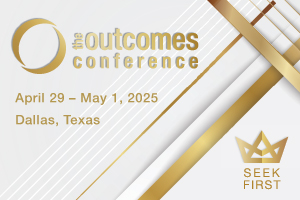
What Jesus Asks Leaders to Be By Paul Swamidass
Jesus sets clear expectations for leaders.
Jesus makes a bold statement in Matthew 23:23-24,
“Woe to you, teachers of the law and Pharisees, you hypocrites! You give a tenth of your spices—mint, dill and cumin. But you have neglected the more important matters of the law—justice, mercy and faithfulness. You should have practiced the latter, without neglecting the former. You blind guides! You strain out a gnat but swallow a camel.”
He warns the Pharisees and other leaders concerning the pursuit of trivial rules in the mistaken hope of EARNING their RIGHT to enter the Kingdom of God. Jesus mentions the futility of striving to keep these trivial rules at the expense of three important spiritual qualities that are neglected or compromised by these leaders. These three spiritual qualities of leaders transcend time; they are just as important today as they were, when Jesus uttered them.
So, what did Jesus say leaders must do? He said leaders must pursue: justice, mercy and faithfulness.
What do these spiritual qualities mean, and how do they apply to Christian leaders today?
Justice
What is justice? It is the morally- and ethically-fair treatment of others, when you are in a position of authority to make decisions that affect others.
How is Justice evident in a leader’s life? Proverbs 29:7 says,
“The righteous care about justice for the poor, but the wicked have no such concern.”
Routinely, justice or injustice for the poor is administered by the decisions of leaders in positions of authority.
Leaders must be conscious of the fact that it is quite easy for leaders and the powerful to neglect justice in their actions affecting the poor and the defenseless. Remember, according to the verse above, the Pharisees were able to ignore justice, and got away with it—Jesus appears to be the only one confronting them.
The verse (Prov. 29: 7 above) also includes this ominous statement that a leader, who is unjust towards the poor is “wicked;” it is not a label that a true Christian leader would want.
Mercy
How is mercy evident in a leader’s life? Proverbs 18: 23 says,
“The poor plead for mercy, but the rich answer harshly.”
The term “rich” could include leaders and the people in positions of authority. Just as we noted above, mercy is also defined in the context of how the rich and powerful leaders treat the poor and the defenseless. In life, often, the poor are placed in situations where they are at the mercy of the decisions or actions of leaders and/or people in authority.
Thus, leaders, by their conduct towards the poor and the defenseless can demonstrate mercy or the lack of it. The verse also notes that leaders and others in authority, when they lack mercy, they could be “harsh” in the treatment of the poor and the defenseless. Merciful treatment takes away the harshness.
May God give grace to Christian leaders to display mercy in their relationship with all the poor, weak and defenseless people in their life and/or those whom they encounter.
Faithfulness
How is faithfulness evident in a leader’s life? Speaking of God, the author of Psalm 91:4 (NIV) says,
“...his faithfulness will be your shield and rampart.”
Rampart refers to the protective wall surrounding an ancient town to keep out brutal invaders. A shield is a personal protective tool.
Faithful leaders protect those whom they lead as an expression of their faithfulness. They would not abandon their followers, when they need the protection of leaders. Leaders have an obligation to protect those, whom they lead.
Jesus called Pharisees and other leaders, “blind guides,” meaning they can go astray, while taking their followers with them; this is not the mark of a faithful leader. The term “blind guides” also implies they cannot see or teach what is true; consequently, unlike faithful leaders, they can mislead or misdirect their followers.
In admonishing the Pharisees, Jesus revealed that He would expect justice, mercy and faithfulness from Christian leaders.
####
Paul Swamidass, Ph.D. is Professor Emeritus, Harbert College of Business, Auburn University, Auburn, AL, USA. He retired from Auburn University in 2016 after teaching there for 24 years. He was an industrial manager with an engineering degree before graduate education in business administration and a university career as a faculty member lasting 33 years.
If you are a Christian leading in a nonprofit, church, academic institution or business, then The Outcomes Conference 2020 is for you. This outcomes-oriented event features:
- Inspiring general sessions designed to expand your mind and refresh your soul
- Thought leadership in the areas of executive leadership, board governance, finance, tax and legal, human resources, marketing, resource development and technology
- Practical, leadership training based on biblical principles
- Continuing education credits available through SHRM, CPE (NASBA), CFRE and the Alliance’s CCNL and OLC credential and certificate programs
- Powerful peer networking and collaboration opportunities
Register between now and October 31, and you’ll take advantage of early event savings.
www.OutcomesConference.org

What is Christian Leadership Alliance?
Christian Leadership Alliance equips and unites leaders to transform the world for Christ. We are the leaders of Christ-centered organizations who are dedicated to faithful stewardship for greater kingdom impact.
Sign up for FREE blog updates.
Upcoming Events
Check back later!





